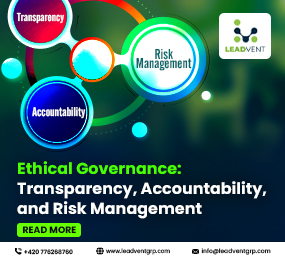Africa’s Climate Journey: How ESG Is Powering Sustainable Progress
Across the African continent, a quiet but determined shift is taking place one that weaves environmental responsibility, social inclusion, and sound governance into the fabric of growth. ESG (Environmental, Social, and Governance) is no longer just a corporate checkbox; in Africa, it’s becoming a blueprint for sustainable development in a time of climate urgency.
Africa contributes less than 4% of global carbon emissions, yet it remains among the most vulnerable to climate change. From recurring droughts in the Horn of Africa to severe flooding in West Africa, the consequences are deeply felt. But Africa’s climate story is not just one of risk. It is also one of innovation, community resilience, and forward-thinking leadership.
A Homegrown ESG Perspective
For Africa, ESG is deeply tied to local realities. Environmental stewardship isn't just about reducing emissions it's about managing land and water sustainably so communities can farm, fish, and live with dignity. Social impact isn't a buzzword it's central to every discussion about access to energy, healthcare, education, and job creation. And governance goes beyond compliance it’s about restoring trust and transparency in both public and private institutions.
African governments, entrepreneurs, and civil society groups are increasingly aligning ESG principles with national development strategies. In countries like Kenya, Rwanda, and South Africa, renewable energy projects are not only lowering emissions but expanding access to power. Startups are integrating circular economy models. Meanwhile, local banks and exchanges are adopting ESG reporting standards to attract long-term investment.
Finance and Climate Action Meet
Climate finance is essential for scaling solutions. ESG metrics are helping unlock international funding by providing transparency and accountability. Investors want to know their capital is not only safe but meaningful. African companies that adopt ESG frameworks are better positioned to attract green bonds, development finance, and private equity all critical to building resilient economies.
Events like the Africa Climate Summit and platforms such as the African Development Bank’s Adaptation Acceleration Program are creating spaces for
African leaders to shape the global climate agenda on their own terms. ESG offers a framework for turning ambition into action and rhetoric into results.
Challenges, But Not Roadblocks
Implementing ESG across such a diverse continent is not without obstacles. Many businesses still operate informally and lack the capacity to report on ESG criteria. Data gaps make it harder to measure progress. Yet progress is evident. A growing number of African companies are publishing sustainability reports. Institutions are offering ESG training. Regional ESG standards are emerging, tailored to African markets rather than borrowed from abroad.
Takeaway Point:
Africa’s engagement with ESG is about more than meeting global expectations it's about securing a just, inclusive, and climate-resilient future. As the world looks to scale climate action, Africa’s approach to ESG offers a model rooted in people, purpose, and long-term progress.
Learn more on our website: https://www.leadventgrp.com/event/esg-and-climate-africa-summit/register
For more information and group participation, contact us: [email protected] .
Leadvent Group - Industry Leading Events for Business Leaders!
www.leadventgrp.com | [email protected]
















